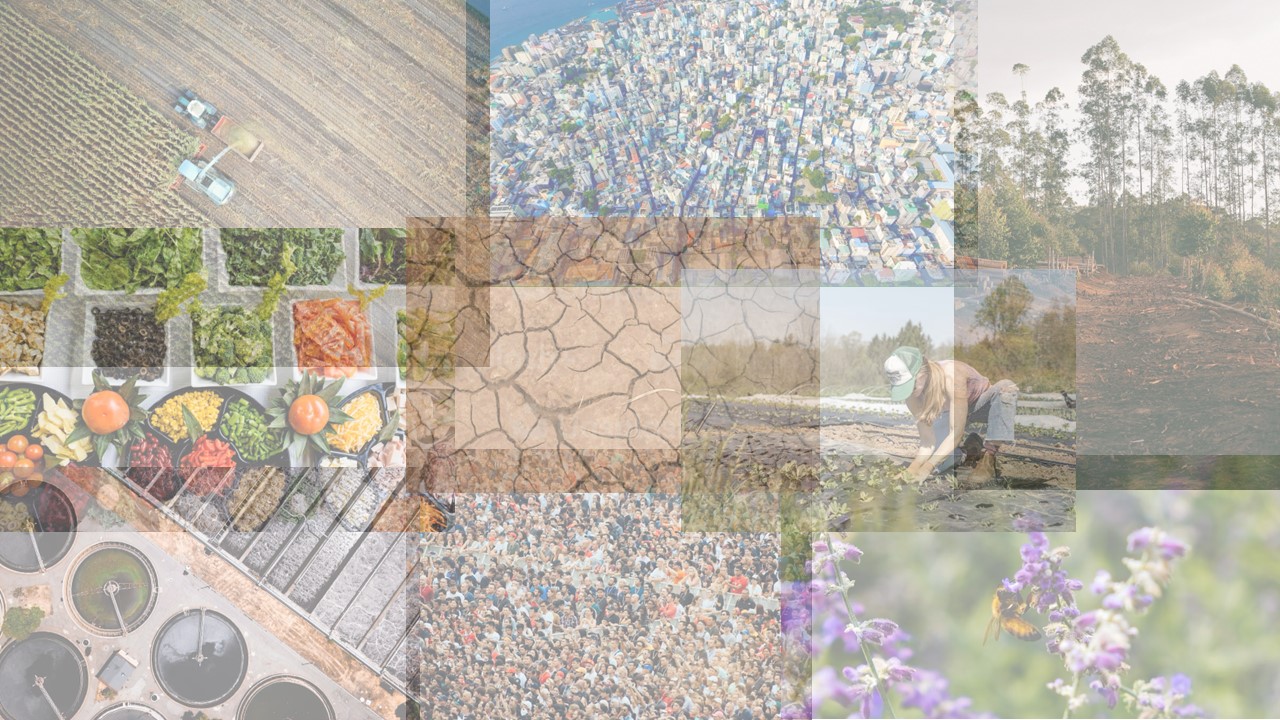Invitation and Programme
Global food production is increasingly confronted with environmental, social and political challenges. Today, agriculture is already one of the main drivers for deteriorating planetary health. It is responsible for around 30 % of the world’s energy consumption, 30 % of greenhouse gas emissions, 70 % of water consumption and 75 % of deforestation causing biodiversity loss, land use conflicts and food insecurity. At the same time, current models predict that the world’s population will grow from currently 8 billion to about 10 billion people by 2050, thereby aggravating existing conflicts.
Based on these developments, we have to rethink agriculture and our nutrition. For example, more efficient use of fertilisers or the use of modern technologies to increase efficiency, offer opportunities for more sustainable food production. The aim is to ensure food security with fewer resources. Biodiversity must not only be preserved, but also restored. Likewise, a healthier diet must be in line with sustainable production capacity, also known as planetary health diet. This also means that we must be more mindful in our consumption to reduce problems such as food waste. How we design agriculture and food in the future is therefore of central importance for the health of our planet and of every individual.
What is a healthy diet? How can we use resources more efficiently? What opportunities do we have to make global agriculture more just and ensure food security? What impact does agriculture have on biodiversity and how can we reduce it?
When: 30 May 2023, Admission 18:30, Start: 19:00
Where: Upper cupola hall, Natural History Museum Vienna, main entrance – Maria-Theresien-Platz, 1010 Vienna
Welcome
Katrin Vohland, Director General of the Natural History Museum Vienna
Nikolaus Hautsch, Vice-Rector for Infrastructure, University of Vienna
Gerhard Herndl, Professor of Marine Biology and Aquatic Biology, University of Vienna
Keynote “The challenge of nourishing 10 billion people in harmony with the health of our planet”
Thilo Hofmann, Professor of Environmental Geosciences at the University of Vienna
Panel Discussion
- Franz Essl – Biodiversity researcher and professor at the Department of Botany and Biodiversity Research at the University of Vienna
- Thilo Hofmann – Professor of Environmental Geosciences at the University of Vienna and Director of the Environment and Climate Research Hub
- Stefanie Lemke – Professor and Head of the Institute of Development Research at BOKU University
- Petra Pjevac – Senior scientist at the Department of Microbiology and Ecosystem Science at the University of Vienna
- Karl-Heinz Wagner – Professor of Nutrition and Food Quality at the University of Vienna
- Moderator: Marlene Nowotny, science editor Ö1 radio
